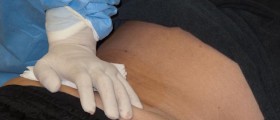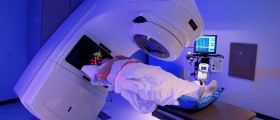
Esophageal cancer in different age
Cancer of the esophagus is a lot more seen in men than women. Men older than 50 years of age are a lot more prone to developing this type of cancer than other men. Noticing the symptoms of any type of cancer is vital because then there are more treatment options available and the chances of survival are a lot higher. However, symptoms of esophageal cancer are hard not notice as they are seen in various other conditions. Dysphagia or difficulty to swallow food is one of the usually present signs of cancer of the esophagus. As the tumor grows in the esophagus the food will pass to the stomach a lot harder and eventually a person will have problems to swallow even liquids. Apart from this sign of esophageal cancer, others like unexplained weight loss, headache and general malaise, severe cough and hoarseness and vomiting, often with blood in it can be seen as well. At the sign of any of these symptoms a person should go to the hospital in order for the doctor to determine whether the symptom is connected to cancer of the esophagus.Every type of cancer has risk factors. Risk factor is anything that increases the chance of developing cancer. Some risk factors can be avoided while others cannot. The use of tobacco and the consumption of alcohol can be avoided. Gastroesophageal reflux and Barrett syndrome are conditions that also increase the risk of developing esophageal cancer. Becoming obese increases the risk of esophageal cancer. However, so does a diet that does not contain enough fruits and vegetables. Zinc and vitamins C, A and B1 must not be excluded from the diet.
Esophageal cancer surgeryWhen the cancer of the esophagus is diagnosed, the doctor and the patient will together come up with the best possible treatment plan. Certain factors like the stage of the cancer and the general health of the patient are taken into consideration when the treatment plan is being discussed. Esophageal cancer is not an easy disease to treat and that is why a team of specialist is usually involved in the planning of treatment. This team consists of an oncologist, surgeon, radiation oncologist and a nutritionist.
If the cancer was diagnosed in the early stages, there are more options for treatment. Surgery is the most often therapy used in situations when the caner has not progressed a lot. Chemotherapy and radiation therapy are often being administrated before the surgical procedure in order for the surgery to have more chances of success. Chemotherapy and radiation therapy treatments usually last for two months before the patient can be evaluated whether he or she ready for surgery. A combination of cisplatin and flurouracil is the most often used chemotherapy in these situations. The surgical procedure for cancer of the esophagus involves the part of the esophagus that is involved with cancer being removed. After the removal, the remaining part of the organ is connected with stomach. Every lymph node that is infected with cancer is removed as well. If the cancer is located in the upper part of the esophagus, the stomach will be pulled up higher in order to replace the missing part of the esophagus. A part of the small intestine may be used if a larger part of the esophagus is removed. In situations where the cancer was discovered in the lower part of the organ, a part of the stomach will be removed as well. A surgical procedure can treat a number of patients but a majority will experience the recurrence of cancer.Surgery is not an option for every patient diagnosed with cancer of the esophagus. The surgical procedure cannot be performed if the cancer is too high in the esophagus or if the general health of the patient is not strong enough. These patients are usually treated with the combination of chemotherapy and radiation therapy. A number of drugs are used in the treatment of esophageal cancer. Some of these drugs are bleomycin, doxorubicin, methotrexate, vinorelbine, topotecan, irinotecan and paclitaxel, among others. A combination of chemotherapy and radiation therapy is often able to cure cancer if it has not spread to other organs.

















Your thoughts on this
Loading...